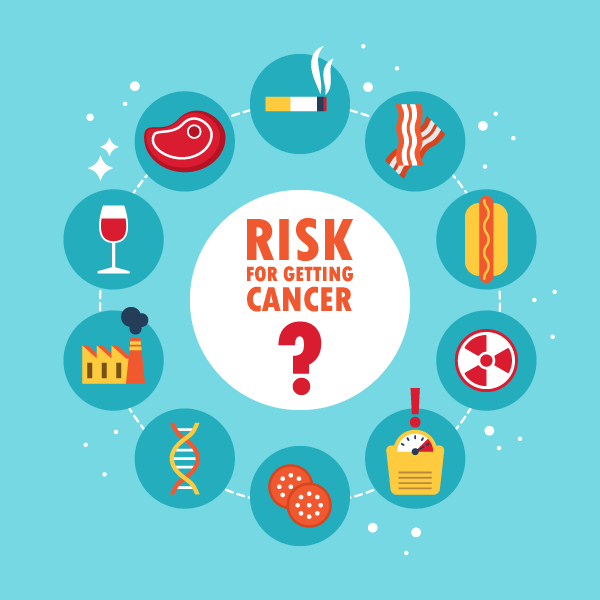6 Cancer Prevention Tips You Must Know

WE CAN I CAN
If you’re concerned about cancer prevention, adopt simple lifestyle changes. Consider these cancer prevention tips.
Don’t use tobacco
Smoking has been linked to various types of cancer —including cancer of the lung, mouth, throat, larynx, pancreas, bladder, cervix and kidney. Even, exposure to secondhand smoke might increase your risk of lung cancer.
Eat a healthy diet
• Eat plenty of fruits and vegetables.
• Avoid obesity
• Avoid alcohol Intake
Maintain a healthy weight and be physically active
• Maintaining a healthy weight might lower the risk of various types of cancer
• Include at least 30 minutes of physical activity in your daily routine
Get regular preventive medical examination
• Regular self-exams and screenings for various types of cancers
• Some screening test for Cancer of the prostate cancer (PSA-Prostate specific antigen), cervix (Pap smear and LBC- Liquid based cytology) and breast (Mammography)
• This can increase your chances of discovering cancer early, when treatment is most likely to be successful
• If you have family history of cancer contact your physician for more information on predictive testing for hereditary cancer
Get immunized
Cancer prevention includes protection from certain viral infections. Talk to your doctor about immunization against:
• Hepatitis B can increase the risk of developing liver cancer
• HPV is a sexually transmitted virus that can lead to cervical and other genital cancers as well as squamous cell cancers of the head and neck.
• The HPV vaccine is recommended for girls and boys ages 11 and 12. It is also available to both men and women age 26 or younger who didn’t have the vaccine as adolescents
Danger signals
• A PERSISTENT SORE in mouth, on the lip or on tongue. Long standing sores due to smoking, sharp edge of teeth, or dental plates that do not fit, can develop into cancer if not taken care of . If any such sore persists more than a few days, see your doctor.
• LUMPS OR MASSES which appear where none were present previously should arouse suspicion of cancer.
• UNEXPLAINED OR ABNORMAL BLEEDING FROM ANY BODY OPENING should be quickly investigated by a physician. Coughing up or vomiting blood, passing blood in the urine and rectal bleeding are common symptoms of cancer.
• PERSISTENT INDIGESTION OR CHANGE IN BOWEL HABITS, while usually due to other causes, are often caused in the intestinal tract and should be reported.
• PERSISTENT HOARSENESS OR COUGH of abnormal duration deserves a careful examination by your doctor. Cancer of the larynx (voice box) or respiratory passages or lung may be the cause.
• UNEXPLAINED LOSS OF WEIGHT may be due to many things but may also be due to hidden cancer.













